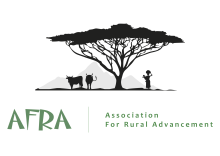Resource information
The paper investigates whether farm dwellers in the KwaZulu-Natal (KZN) province of South Africa are subject to a “double exposure”: vulnerable both to the impacts of post-apartheid agrarian dynamics and to the risks of climate change. The evidence is drawn from a 2017 survey that was undertaken by the Association for Rural Advancement (AFRA), which is a land rights Non-Governmental Organization (NGO), of 843 farm dweller households. Data on the current living conditions and livelihoods was collected on 15.3% of the farm dweller population in the area. The paper demonstrates that farm dwellers are a fragmented, agricultural precariat subject to push and pull drivers of mobility that leave them with a precarious hold on rural farm dwellings. The key provocation is that we need to be attentive to whether the hold farm dwellers have over land and livelihoods is slipping further as a result of instability in the agrarian economy? This instability arises from agriculture’s arguably maladaptive response to the intersection of structural agrarian change and climate risk in post-apartheid South Africa. While the outcomes will only be apparent in time, the risks are real, and the paper concludes with a call for agrarian policy pathways that are both more adaptive and achieve social justice objectives.


